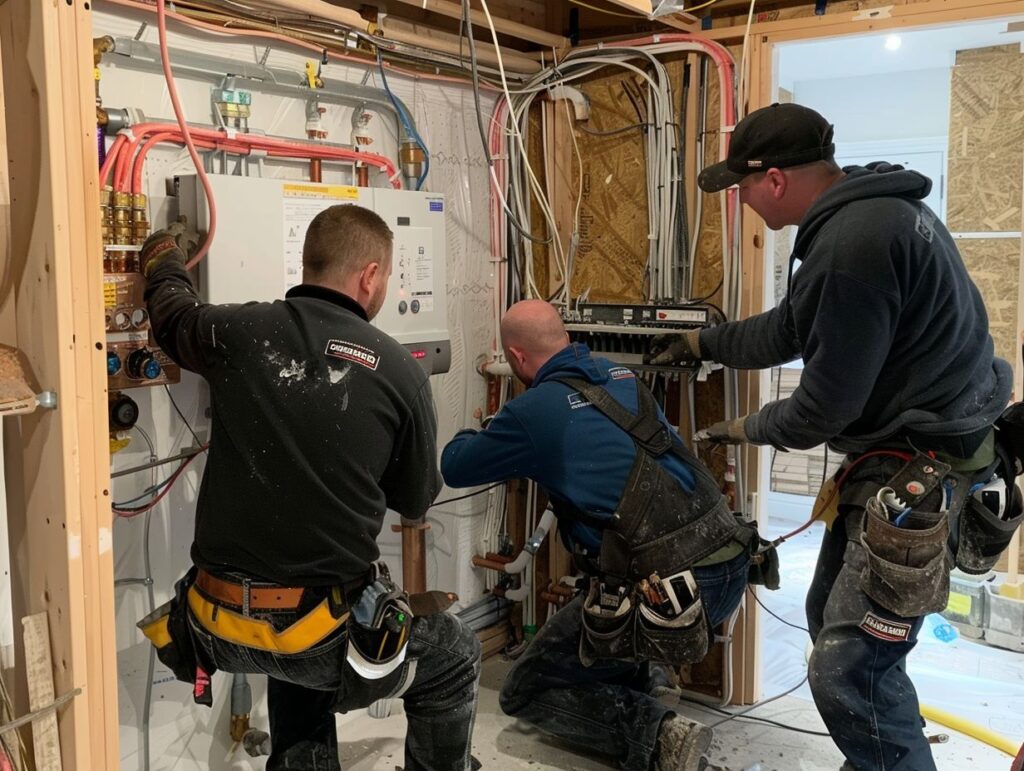Dual fuel heating systems provide a cost-effective and energy-efficient solution for keeping your home warm during the colder months. In this discussion, we will delve into the details of dual fuel heating, covering its definition, the advantages it brings, and the variables that can impact installation expenditures.
Our analysis will outline the costs associated with setting up a dual fuel heating system and offer recommendations on reducing expenses in the installation phase. Determine whether investing in dual fuel heating is a worthwhile decision for your residence.
Key Takeaways:
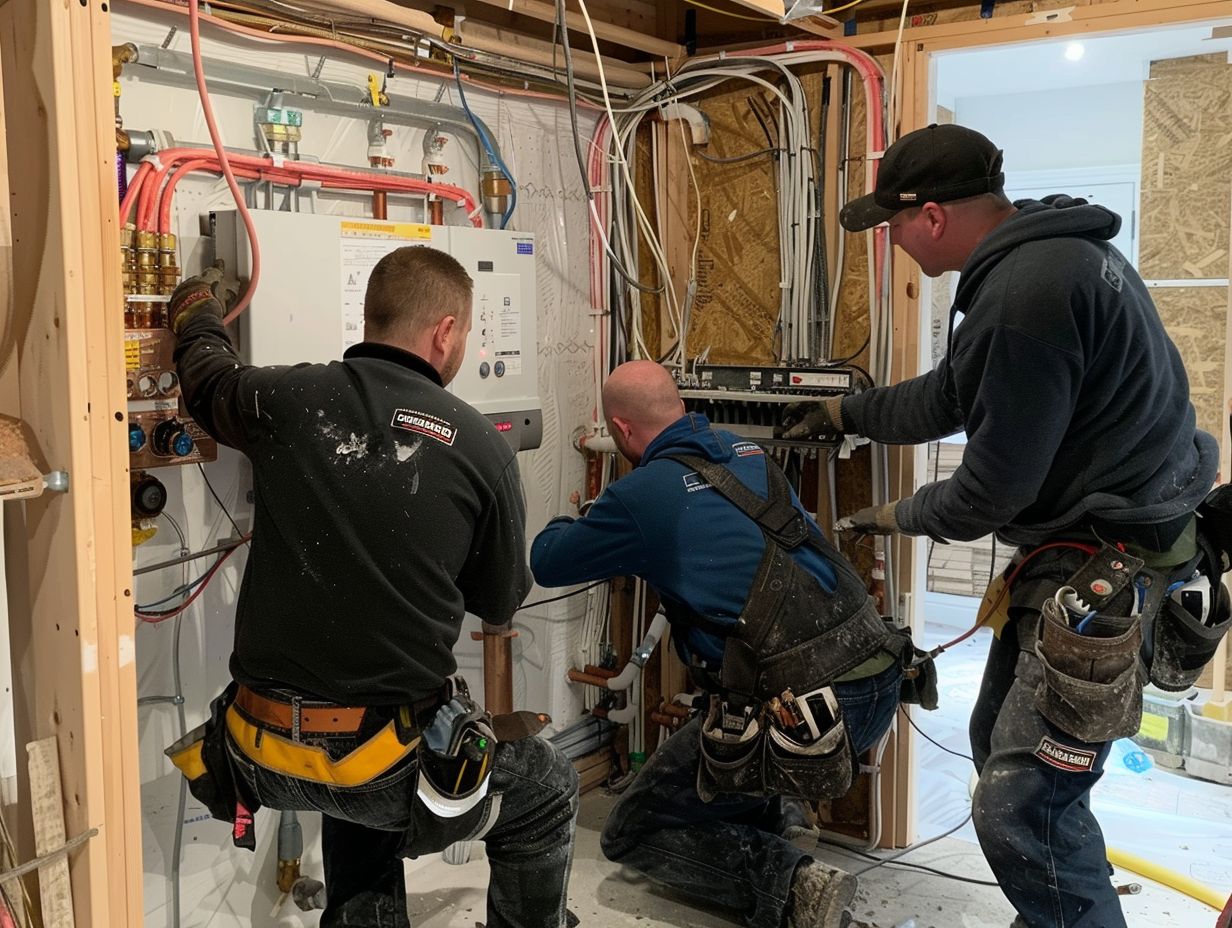
- Dual fuel heating combines the use of two fuel sources, usually gas and electricity, to provide efficient heating. This can result in cost savings and energy efficiency for homeowners.
- Several factors can affect the cost of installing a dual fuel heating system, including the type of system, fuel sources, and the size and complexity of the installation process.
- To save on dual fuel heating installation costs, homeowners can consider buying materials and equipment at a discount, hiring a reputable and experienced contractor, and exploring financing options. The long-term cost savings and energy efficiency make dual fuel heating a worthwhile investment for many homeowners.
Factors Affecting Installation Costs
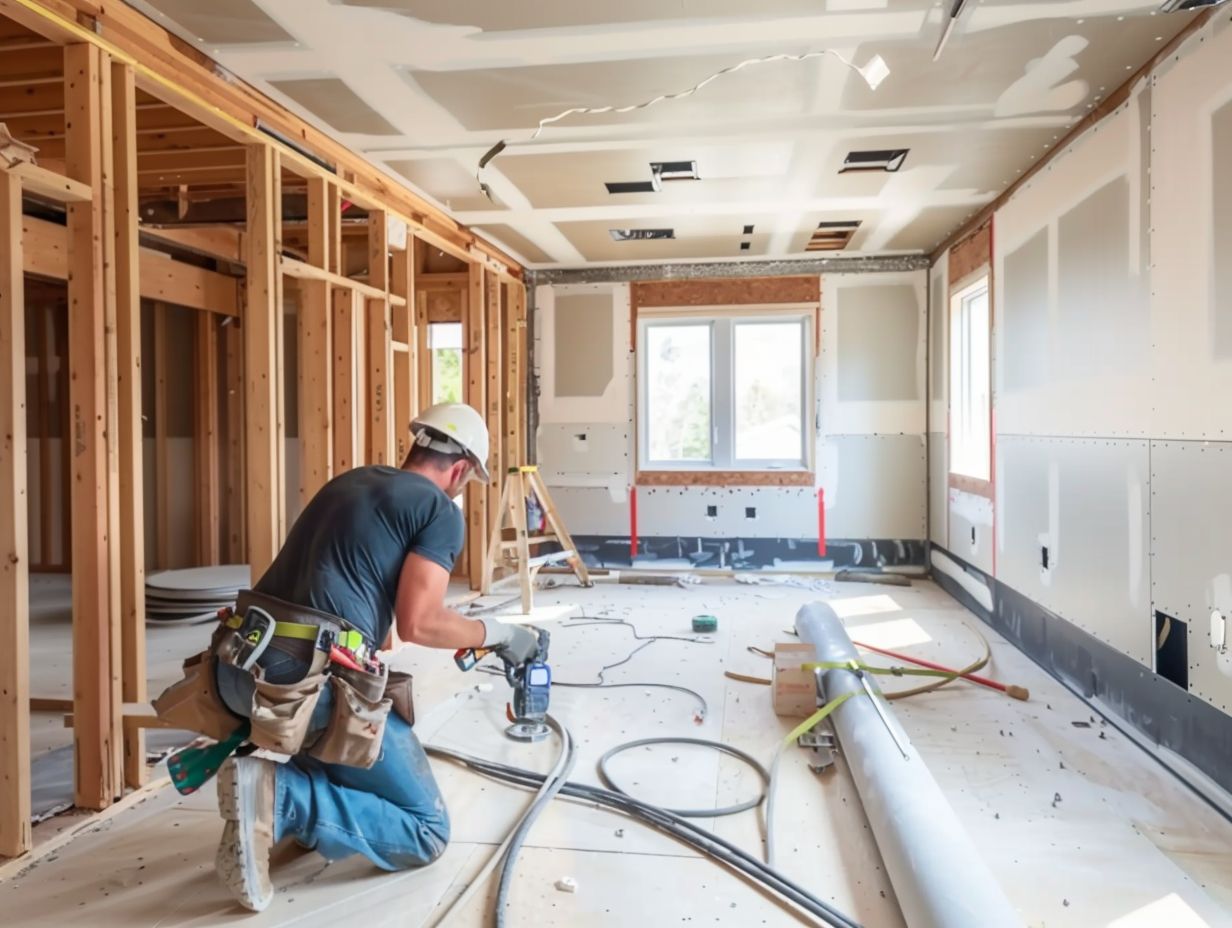
When considering the installation costs of dual fuel heating systems, several factors come into play. The type of boiler selected, the size of the property, and the proficiency of the installation team are all critical in determining the overall expenses associated with implementing a dual fuel heating solution.
Oil boilers, in particular, can exhibit a wide range of prices based on their efficiency ratings and features. Larger properties may necessitate more sophisticated heating systems, which can affect installation complexity and cost.
It is imperative to engage the services of skilled plumbing professionals to ensure the correct installation of the system, thereby minimising the risk of malfunctions or inefficiencies. Proficiency in integrating dual fuel systems is crucial, as improper installation can pose safety risks and compromise system performance.
By taking these variables into account, homeowners can make well-informed decisions when investing in dual fuel heating.
Type of System and Fuel Sources
Regarding Dual Fuel Heating installations, selecting the right Type of System and Fuel Sources is pivotal. As a homeowner, you need to take into account your budget, heating requirements, and the options available to you while deciding between system boilers, fuel types, and heating control mechanisms.
Understanding the critical factors influencing this selection process is crucial for successful project management and ensuring long-term efficiency. By choosing appropriate heating controls, you can optimise energy usage and maintain a comfortable indoor environment.
Evaluating the various fuel supply options allows you to align your heating systems with sustainability objectives and cost-effectiveness. Ultimately, making a well-informed decision regarding system types and fuel sources is the cornerstone for establishing a reliable and customised dual fuel heating system that meets the specific needs of your household.
Size and Complexity of Installation
The size and complexity of your installation are key factors in determining the costs associated with Dual Fuel Heating systems. Properties that are larger in size and have intricate heating setups may require more labour-intensive installations, which can have an impact on the overall project expenses.
It is essential to enlist the services of experts in installation to ensure that your dual fuel heating system is set up correctly and operates efficiently. Professional plumbers who are experienced in handling the complexities of dual fuel systems can guarantee proper pipework arrangements, thereby minimising the risk of future issues.
The intricacies involved in heating controls and their integration into the system also contribute to the overall installation costs. Precise calibration and setup are vital for achieving optimal performance, underscoring the importance of professional expertise in the installation process.
Cost Breakdown of Dual Fuel Heating Installation
Understanding the Cost Breakdown of Dual Fuel Heating Installation is crucial for your budget planning. Components such as labour costs, radiator valves, underfloor heating setups, and the installation of electric boilers all contribute to the total expenses of implementing a dual fuel heating system.
- Labour costs encompass the fees associated with skilled professionals handling the installation process efficiently.
- Radiator valves are essential for regulating heat distribution within the system, thereby adding to the operational costs.
- Incorporating underfloor heating installations demands careful planning and additional investments but can significantly improve overall comfort.
- The addition of electric boilers offers an alternative heat source, albeit requiring an initial capital outlay for the equipment.
Taking into account these various cost factors will provide you with a comprehensive understanding of the financial implications associated with dual fuel heating installations.
Materials and Labour Costs
When considering Dual Fuel Heating installations, you need to take into account both Materials and Labour Costs, as they are crucial elements of the overall expenses. It is important for homeowners to include plumbing fees, professional installation services, the intricacies of the installation process, and the expertise of heating engineers in their calculations of the total project costs.
Plumbing fees can vary based on the complexity of the system and the length of piping required, which can have a significant impact on the project budget. Opting for quality installation services is essential in ensuring that the heating system operates efficiently and has a long lifespan, making it a valuable investment.
The installation process for Dual Fuel Heating systems entails detailed planning, accurate measurements, and coordinated efforts between various components to guarantee a smooth and effective setup. The expertise of heating engineers is vital in Dual Fuel Heating projects for diagnosing and addressing potential issues, prioritising safety, and optimising the system’s performance.
Additional Expenses to Consider
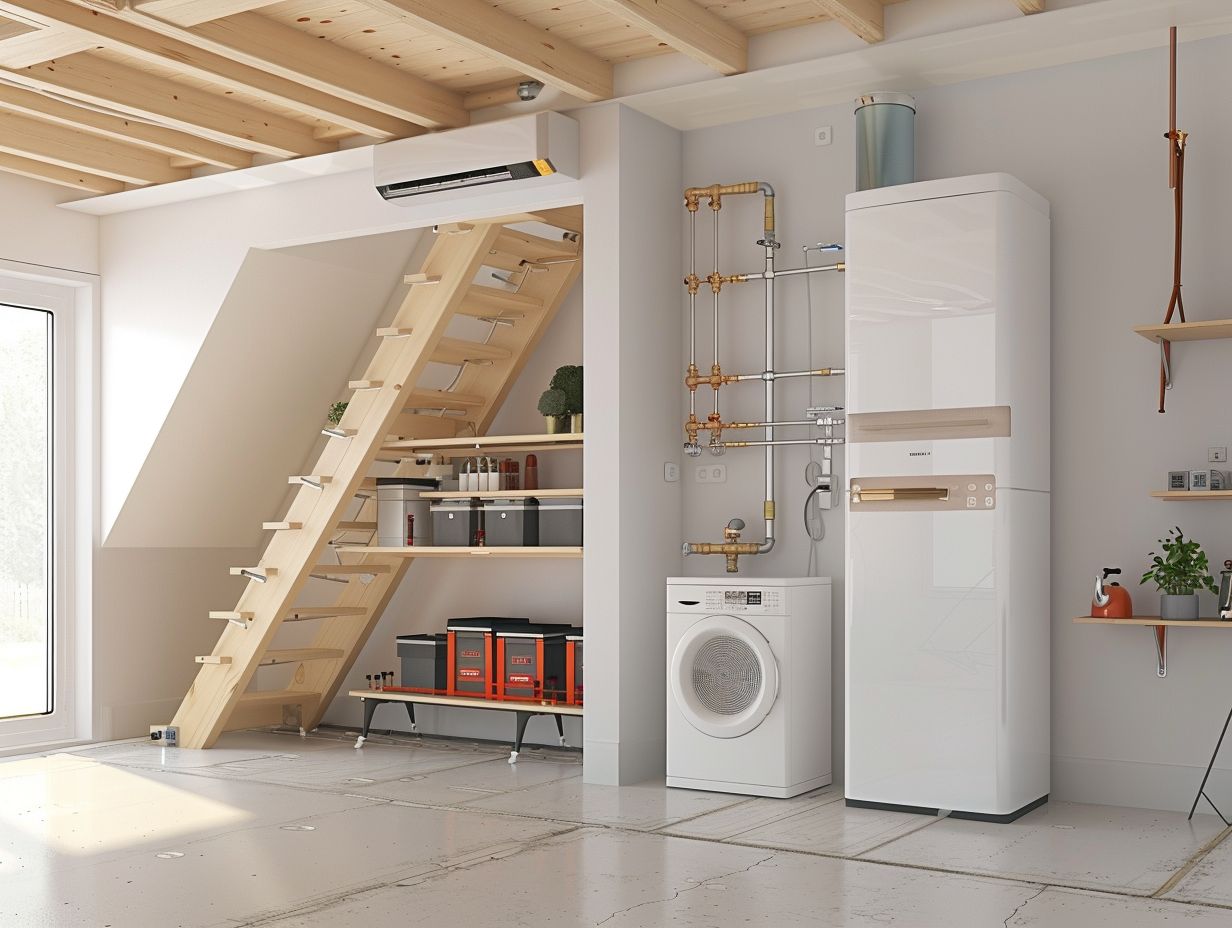
When considering Dual Fuel Heating installations, you should take into account not only Materials and Labour Costs but also various Additional Expenses. Hiring heating engineers, prioritising energy-efficient components, seeking advice from heating specialists, and implementing effective project management practices all play a key role in enhancing the value and success of the project.
Heating engineers are essential in ensuring that the installation is carried out efficiently and in line with industry standards. Investing in energy-efficient solutions not only aids in reducing long-term operational costs but also contributes to the creation of a more sustainable and environmentally friendly heating system.
Consulting with heating specialists can offer valuable insights on optimising the system for maximum efficiency and comfort. Effective project management is crucial for meeting timelines, adhering to budgets, and promptly addressing any challenges that arise, ultimately leading to a smoother overall project execution.
Ways to Save on Dual Fuel Heating Installation
By exploring ways to save on Dual Fuel Heating Installation, you can effectively manage your project costs. Optimising the installation process, engaging experienced heating engineers, prioritising energy-efficient solutions, and collaborating with skilled plumbers are all strategies that can help you achieve cost-effective dual fuel heating solutions.
Efficient installation processes are key to saving costs on dual fuel heating projects. Through proper planning and execution, you can prevent unnecessary delays and expenses. Employing experienced heating engineers brings expertise to the project, ensuring correct installation and efficient operation of the system.
Implementing energy-saving practices, such as using programmable thermostats and scheduling regular maintenance checks, can result in long-term savings on energy bills. Working with professional plumbers allows for seamless resolution of any plumbing-related issues, enhancing the overall functionality of the dual fuel heating system.
Tips for Reducing Costs
Implementing Tips for Reducing Costs in Dual Fuel Heating installations can lead to significant savings for you as a homeowner. By optimising your heating controls, managing fuel supply efficiently, working with experienced heating engineers, and utilising smart thermostat solutions, you can effectively reduce your overall project expenses.
Properly calibrated heating controls help regulate the temperature effectively, preventing wasted energy and unnecessary expenses. Efficient fuel management practices involve timely refills and monitoring fuel consumption to avoid overspending.
Collaborating with skilled heating engineers ensures the system is installed correctly, reducing the need for costly repairs or replacements down the line.
Smart thermostat technologies offer remote access and programmable settings, allowing you to customise heating schedules for optimal energy conservation. By incorporating these strategies, you can achieve enhanced comfort levels while reducing your energy bills.
Is Dual Fuel Heating Worth the Investment?
When determining whether Dual Fuel Heating is Worth the Investment, you need to conduct a thorough analysis of various factors. This includes assessing local installer availability, the potential for integrating renewable energy sources, the complexity of the heating project, and seeking guidance from heating experts.
It is essential to consider the proximity of local installers as having professionals nearby can streamline the installation process and ensure timely maintenance services. Additionally, exploring renewable energy options can enhance the eco-friendliness of the system and potentially lead to cost savings.
Furthermore, evaluating the complexity of the project, including system setup and maintenance requirements, is crucial for ensuring long-term efficiency. Seeking advice from experienced heating specialists can offer valuable insights on optimising the dual fuel system for maximum performance and energy savings.
Frequently Asked Questions
What are the costs associated with dual fuel heating installation?
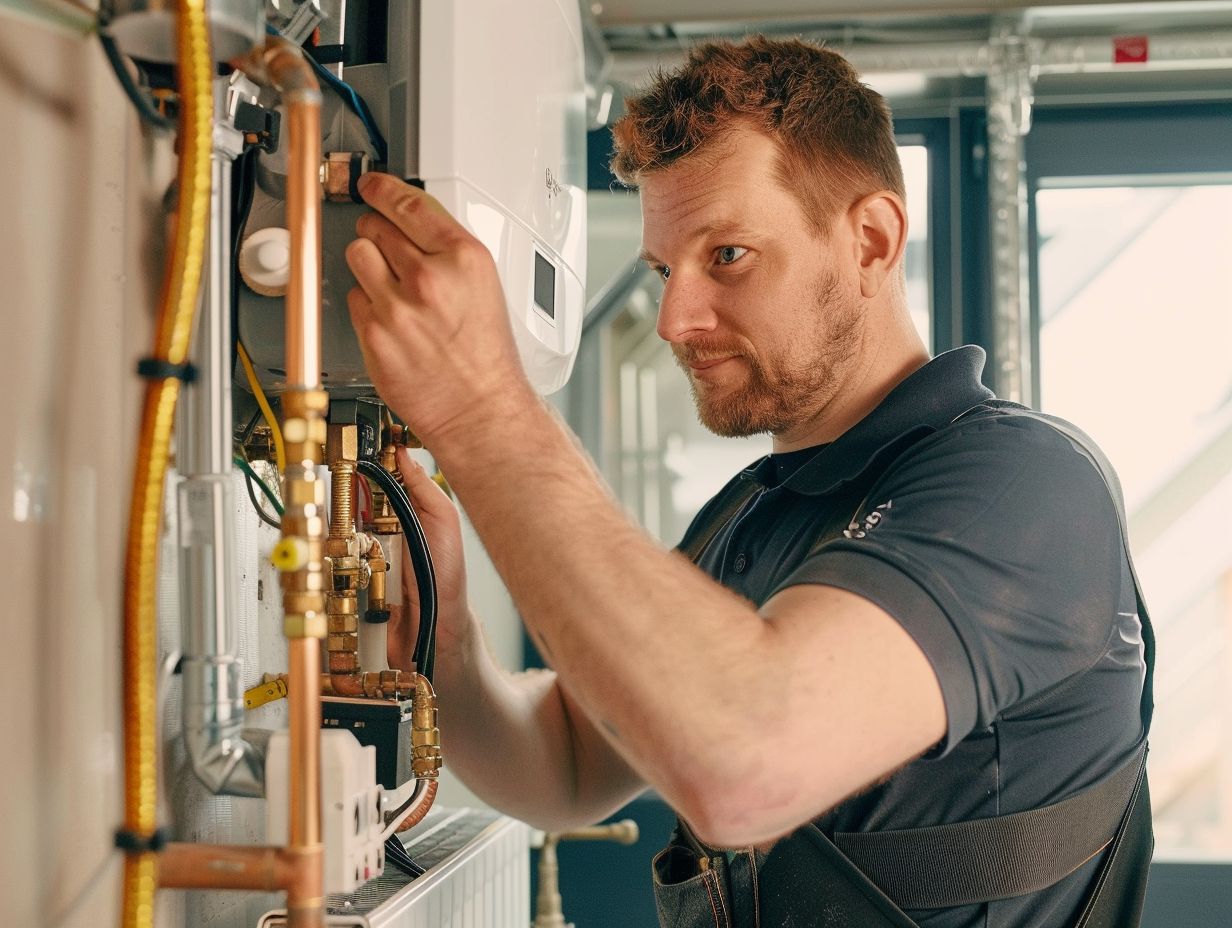
The costs associated with dual fuel heating installation can vary depending on several factors such as the type of system, size of the home, and the labour costs in your area. On average, homeowners can expect to pay between $3,000 and $8,000 for a dual fuel heating system installation.
What factors affect the cost of dual fuel heating installation?
The cost of dual fuel heating installation can be affected by a variety of factors including the type of system chosen, the size of the home, and the complexity of the installation. Other factors such as labour costs, materials, and the location of the home can also impact the overall cost.
Is it worth the extra cost to install a dual fuel heating system?
While a dual fuel heating system may have a higher initial cost, it can save homeowners money in the long run. These systems are more energy-efficient, which can result in lower utility bills. Additionally, the ability to switch between gas and electricity can save money during times of fluctuating energy prices.
Are there any additional costs to consider with dual fuel heating installation?
Yes, there may be additional costs to consider when installing a dual fuel heating system. These can include the cost of any necessary ductwork, permits, and potential upgrades to your electrical or gas systems. It is important to discuss these potential costs with your HVAC contractor before beginning installation.
Can I save money on the installation by doing it myself?
It is not recommended to attempt to install a dual fuel heating system yourself. These systems are complex and require specific knowledge and training to properly install. Attempting to do it yourself could result in costly mistakes and potentially dangerous situations. It is best to leave the installation to a professional HVAC contractor.
Are there any ways to save money on dual fuel heating installation?
There are a few ways to potentially save money on dual fuel heating installation. Some HVAC contractors may offer financing options or discounts for installation services. It is also a good idea to compare quotes from multiple contractors to find the best price. Additionally, consider installing your system during the off-season when contractors may offer lower prices.

